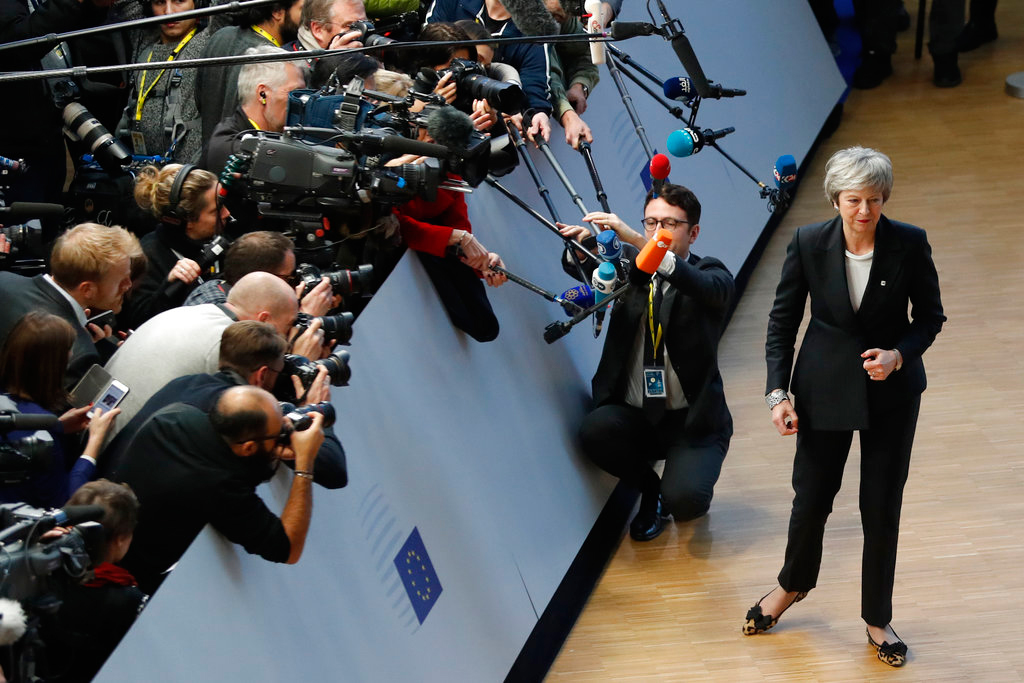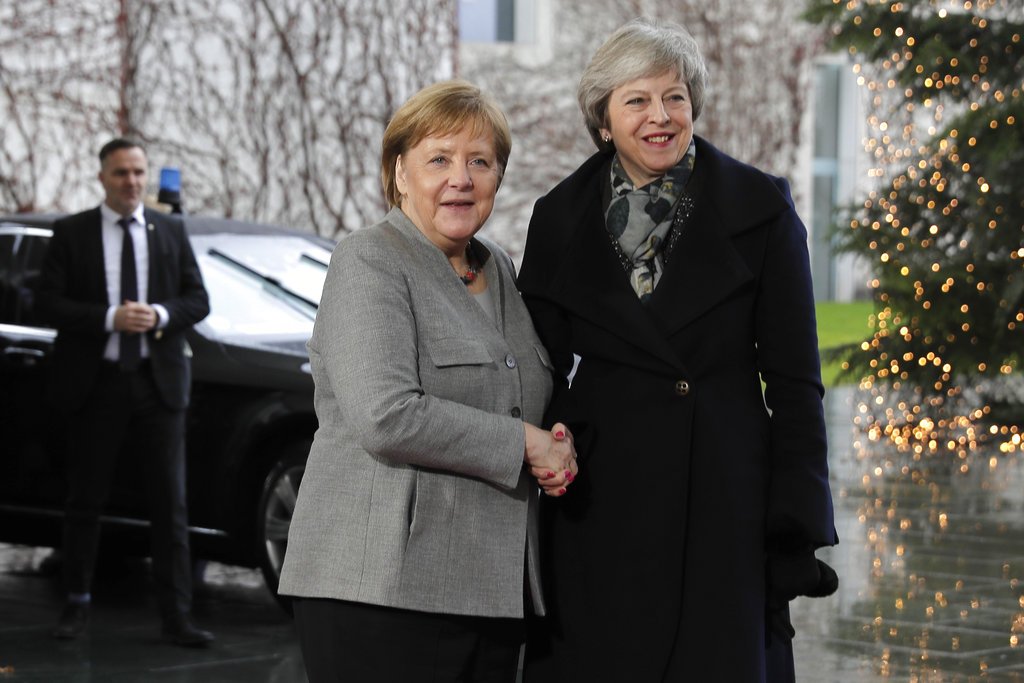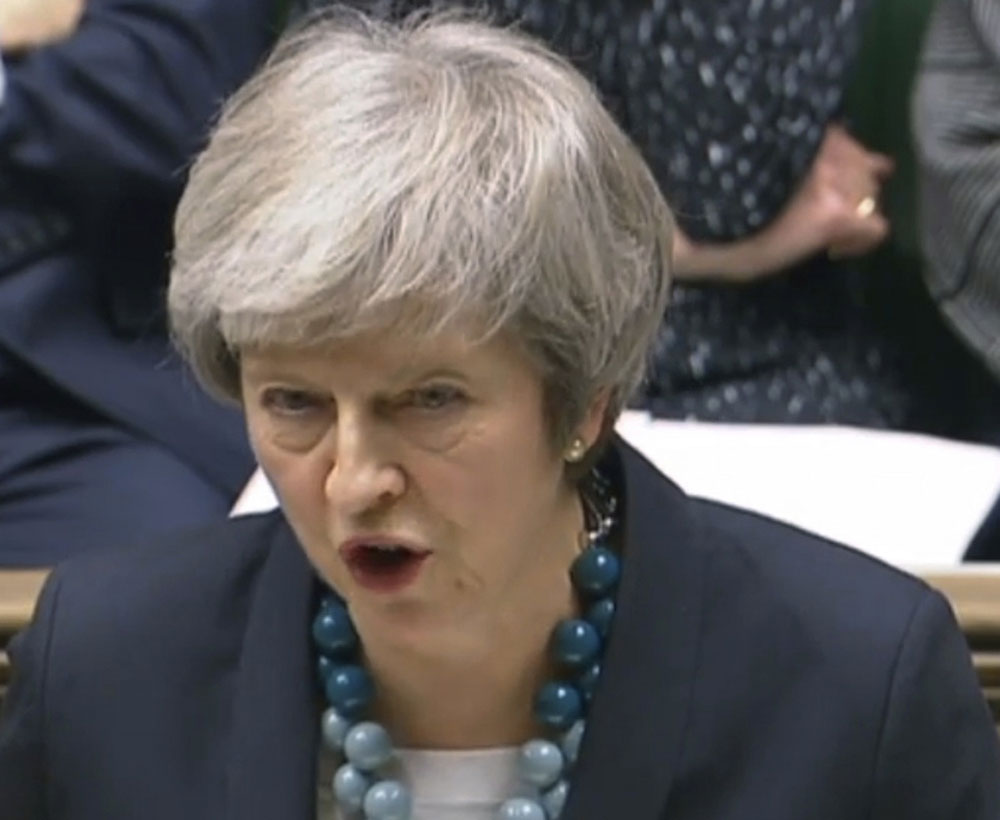British Prime Minister flew to Brussels on Thursday to seek new concessions after having survived the attempted political assassination of the night before by winning the leadership contest by 200 votes to 117.
The problem simply is this: in trying to work out how to deal with Brexit, the House of Commons — and indeed the whole political establishment and the country — is trying to grapple with a problem to which there appears to be no solution.
India has a new high commissioner in London — Ruchi Ghanshyam — following the retirement of Yash Sinha but while negotiations for an India-UK Free Trade Agreement have got under way, these cannot be concluded until Britain has formally left the EU which is still several years down the line.
In some senses, India-UK relations — on everything from visas to student admissions — are on hold while Brexit is resolved. May can still be ousted through a no- confidence motion that the Labour leader Jeremy Corbyn is planning to table in the Commons. There will have to be a parliamentary vote on May’s withdrawal deal (postponed from December 11) before January 21.
The new high commissioner will find Thursday’s press coverage of the failed coup against May very enlightening, not least because the main national newspapers have stopped functioning as newspapers in the conventional sense and are using comment, for and against the Prime Minister, as page one “news”.
Normally a staunch Tory supporting paper, The Daily Telegraph’s headline read: “A vote to Remain, but when will she Leave?”
“Over half the party’s backbenchers demand new leader,” added the paper, which wants May replaced by its £275,000 a year columnist and former foreign secretary Boris Johnson.
He would have been a better bet for India had he decided not to seek a divorce from his half-Sikh wife, Marina Wheeler.
Inside the paper has given generous space to chief plotter and hardline Brexiteer Jacob Rees-Mogg, who described May’s victory margin as “terrible” and suggested: “She ought to go and see the Queen urgently and resign.”
The Telegraph has been neutralised by an arguably more influential voice — that of the middle market Daily Mail, whose new editor, Geordie Greig (Eton & Oxford), has reversed the fiercely pro-Brexit line of his predecessor Paul Dacre (University College School & Leeds University).
Its page one put an opposite spin to that of the Telegraph: “Tory Vote Drama: Now Let Her Get On With The Job! May sees off the plotters with two thirds of the party behind her — but declares: I WON’T lead Tories at next election.”
Inside is a comment piece by columnist, Sarah Vine: “Now the venal wreckers must get behind her.”
This is significant for two reasons. Dacre’s Mail had used “wreckers” to describe the Remain lobby.
Also, Vine happens to be married to the environment secretary, Michael Gove, a Brexiteer who has chosen to remain in the cabinet and back May.
In Britain, there is an intimate relationship between journalism and politics through marriages and boyfriend/girlfriend links. As she reports back to Delhi, the high commissioner might find some calmer analysis in the Financial Times, which has just been named the “news provider of the year” in the British Journalism Awards.
“Once again Theresa May has pulled off a Houdini act…. She is now relatively secure; Mrs May cannot be challenged again for the next year under party rules and will remain in Downing Street as long as her government has the confidence of the House of Commons,” the FT commented.
“Yet it is a Pyrrhic victory. The three-figure rebellion was larger than she would have hoped.”
Over a third of Tory MPs have no confidence in their leader. Once the ‘payroll vote’ — those who are employed by the government in some form — is discounted, over
half of backbench Tories put a cross against the prime minister. The cabinet and the centre ground of the party rallied behind the leader, but Mrs May’s standing is barely strengthened.
“This mutiny by hardline Brexit believers deserved to fail. The attempted coup was driven by ideologues and fantasists who believe a clean break with the EU is more important than economic security. They are wreckers who will never be won round to any cause but their own.
“These MPs should nonetheless reflect on the illogic of their position. They are happy to demand the nation accepts the slim majority vote in favour of leaving the EU in the 2016 referendum, but will not accept the clear two-to-one majority defeat in their own party.”













